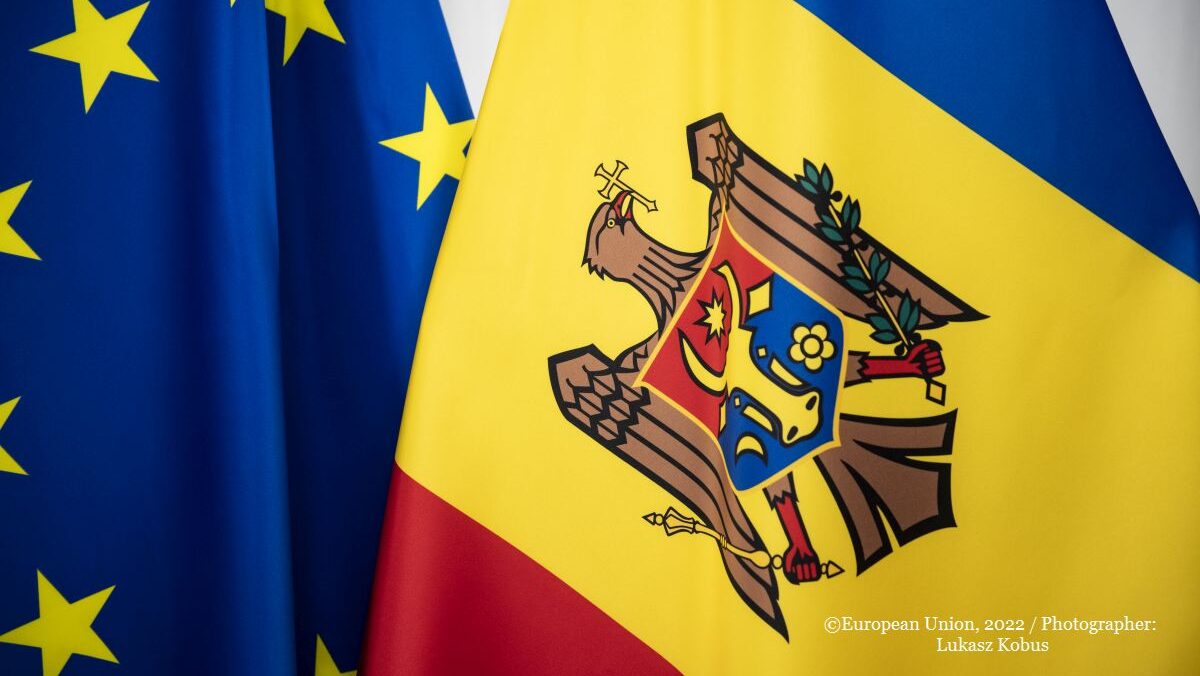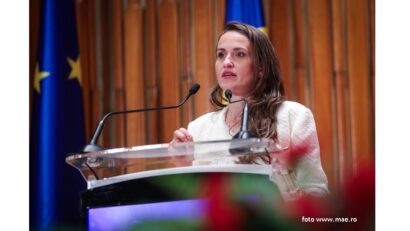Russia’s interference in Moldova’s elections
The European Union imposed new restrictions against individuals responsible for destabilising actions in the Republic of Moldova

Ştefan Stoica, 15.10.2024, 13:50
Almost 3 and a half decades after the declaration of independence, the elections this coming Sunday might decisively shape the future of the Republic of Moldova. On October 20, the citizens of the small state neighboring Romania to the west and with a predominantly Romanian-speaking population go to the polls to elect their president and to express their opinion in a referendum on the inclusion of accession to the European Union in the Constitution.
The one who called the referendum is precisely the president in office, Maia Sandu, who is hoping for a new term and is the favorite to win the election, a politician respected internationally for the courage and determination with which she put the small Moldovan state on the European map. Aware of the risk that the former vassal from the Soviet era will definitively leave its sphere of influence, Russia is trying in every way – according to Moldova’s Western partners – to influence the outcome of the presidential election and the referendum.
The United States has imposed sanctions on several Russian entities and individuals for their interference in the elections in the Republic of Moldova, accusing those targeted of having orchestrated a campaign to buy votes and support pro-Kremlin candidates. On Monday, it was the European Union’s turn to adopt similar measures. The Union Council imposed restrictions against five people and an entity responsible for destabilizing actions in Chisinau. “Moldova – said the head of EU diplomacy Josep Borrell in a press release – is facing massive direct attempts from Russia to destabilize the country and challenges resulting from the war of aggression waged by Russia against Ukraine”.
“This is a direct threat to a sovereign country, to its democratic life, to its path to the European Union. The EU will continue to provide all the necessary support for the justified aspirations of the Moldovan people”, stressed Borrell. One of the persons sanctioned is Evghenia Guţul, Governor of the Gagauzia autonomous territorial unit, seen as responsible for promoting separatism in that region, through which she tries to overthrow the constitutional order and thus threatens the sovereignty and independence of the Republic of Moldova.
Three other high-ranking Gagauz officials are also on the list of those sanctioned. A non-governmental association based in Russia whose goal is to promote Moscow’s interests abroad and its director are also sanctioned. Those targeted by the sanctions will be subject to a freezing of their EU assets and a ban on receiving funds or economic resources, directly or indirectly. The number of those targeted by such restrictive measures has now reached 18, 16 persons and two entities.
Romania, through the Minister of Foreign Affairs, Luminiţa Odobescu, welcomed the adoption of the new sanctions and recalled the importance of continuing the EU’s efforts to strengthen the resilience of the Republic of Moldova, against the background of the intensification of disinformation and Russia’s hybrid actions against this state. (MI)






























